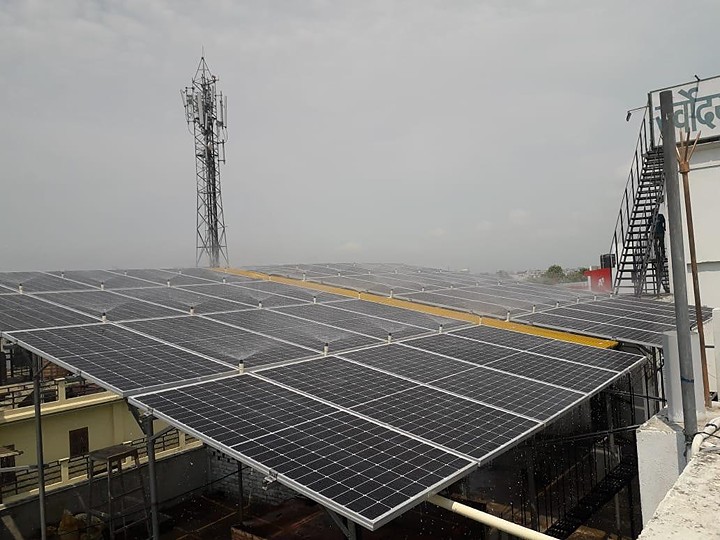"Discover How Solar Companies are Transforming Energy Solutions"

In recent years, the global shift towards sustainable and renewable energy sources has gained significant momentum. Solar energy, in particular, has emerged as a leading solution to the world’s growing energy needs. At the heart of this transformation are companies, which play a crucial role in advancing solar technology, increasing accessibility, and promoting the widespread adoption of solar power. This blog will explore how solar companies are revolutionizing energy solutions, with a focus on the critical role of solar panels in this green energy revolution.
Introduction
As concerns about climate change and environmental sustainability intensify, the demand for cleaner, more sustainable energy sources is on the rise. Solar energy, derived from the sun’s radiation, presents a viable solution to these challenges. Solar companies, which specialize in the development, installation, and maintenance of solar energy systems, are at the forefront of this transition. These companies not only provide the technology necessary to harness solar power but also drive innovation, affordability, and adoption in the renewable energy market. This blog will delve into the transformative impact of solar companies and the pivotal role of solar panels in shaping a sustainable future.
The Role of Solar Companies in the Energy Sector
1. Innovation and Technology Advancement
Solar companies are the driving force behind the technological advancements in the solar energy sector. They invest heavily in research and development to improve the efficiency and affordability of solar panels and related technologies. Innovations such as higher efficiency photovoltaic cells, bifacial panels, and advanced inverter technologies are all products of the continuous efforts of solar companies. These advancements not only make solar energy more accessible but also enhance its viability as a primary energy source.
2. Increasing Accessibility and Affordability
One of the main barriers to the widespread adoption of solar energy has been its cost. Solar companies have made significant strides in reducing the costs associated with solar panel production and installation. Through economies of scale, improved manufacturing processes, and competitive market strategies, these companies have made solar energy systems more affordable for both residential and commercial users. Additionally, many solar companies offer financing options, leasing programs, and power purchase agreements (PPAs) to further lower the entry barrier for consumers.
3. Comprehensive Services and Solutions
Solar companies provide comprehensive services that go beyond just the sale and installation of solar panels. They offer end-to-end solutions, including site assessment, system design, permitting, installation, and ongoing maintenance. This holistic approach ensures that customers receive tailored solutions that meet their specific energy needs and optimize their investment in solar technology. Moreover, solar companies often provide monitoring services to track the performance of solar systems and ensure they operate at peak efficiency.
The Importance of Solar Panels
1. Core Component of Solar Energy Systems
Solar panels are the core component of any solar energy system. They are responsible for converting sunlight into electricity through the photovoltaic effect. The efficiency and quality of solar panels directly impact the overall performance and effectiveness of the solar energy system. Modern solar panels are designed to capture and convert more sunlight into electricity, even in low-light conditions, making them more reliable and efficient.
2. Environmental Benefits
The environmental benefits of solar panels are significant. Unlike fossil fuels, solar panels generate electricity without emitting harmful greenhouse gases. By reducing reliance on coal, oil, and natural gas, solar panels help decrease air pollution and mitigate climate change. The widespread adoption of solar panels can lead to a substantial reduction in the carbon footprint of households, businesses, and entire communities.
3. Energy Independence and Security
Solar panels provide a pathway to energy independence and security. By generating their own electricity, homeowners and businesses can reduce their dependence on grid power and fossil fuels. This not only leads to cost savings but also enhances energy security, particularly in regions prone to power outages or with limited access to reliable energy sources. Solar panels, coupled with energy storage solutions, can ensure a continuous power supply, even during emergencies.
Case Studies: Impact of Solar Companies
1. Residential Solar Solutions
Solar companies have made it possible for homeowners to embrace renewable energy by offering customized residential solar solutions. For instance, a typical residential solar installation includes solar panels mounted on the roof, an inverter to convert the generated DC power into AC power, and a monitoring system. Solar companies assess the home’s energy needs, design the system accordingly, and handle all aspects of installation and maintenance. As a result, homeowners can significantly reduce their electricity bills and contribute to environmental sustainability.
2. Commercial and Industrial Applications
Beyond residential use, solar companies are also transforming the commercial and industrial sectors. Businesses with large rooftops or open spaces can install extensive solar panel arrays to meet their energy demands. Solar companies provide scalable solutions that can power entire facilities, leading to substantial cost savings and a reduced environmental impact. For example, large corporations and factories are increasingly turning to solar energy to power their operations, showcasing the versatility and scalability of solar solutions.
3. Community Solar Projects
Community solar projects are another innovative approach spearheaded by solar companies. These projects allow multiple households or businesses to share the benefits of a single, large solar installation. Participants subscribe to a portion of the solar energy produced, which offsets their individual energy consumption. This model makes solar energy accessible to those who may not have suitable rooftops for solar panels, such as apartment dwellers or renters. Community solar projects demonstrate how solar companies are making renewable energy inclusive and widely available.
Conclusion
Solar companies are undeniably at the forefront of transforming energy solutions, driving the global shift towards sustainable and renewable energy sources. Through continuous innovation, increased accessibility, and comprehensive service offerings, these companies are making solar energy a viable and attractive option for a wide range of consumers. Solar panels, as the fundamental component of solar energy systems, play a crucial role in this transformation, offering significant environmental benefits, cost savings, and energy independence.
As we move towards a more sustainable future, the impact of solar companies and solar panels will continue to grow, paving the way for a cleaner, greener, and more energy-efficient world. By embracing the solutions provided by solar companies, individuals and businesses alike can contribute to this global energy revolution, ensuring a better and more sustainable future for generations to come.

